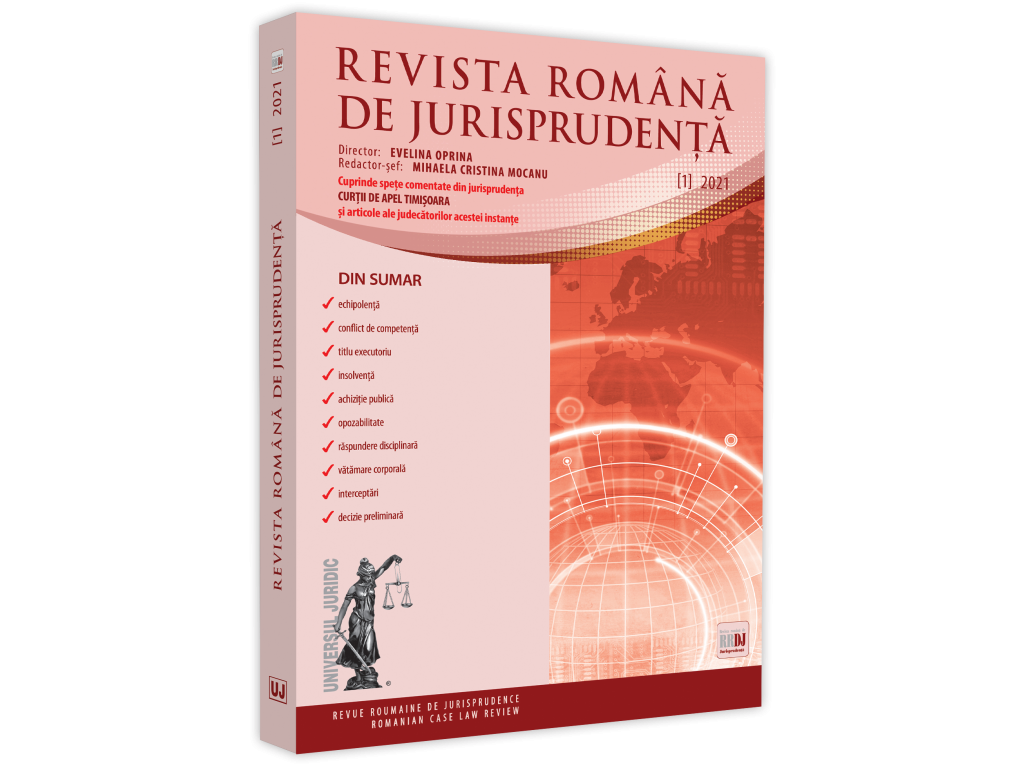VAT Taxable Transactions. The notions of 'taxable person' and 'economic activity' in national tax legislation and in European law. Conditions for the right to deduct the VAT
DREPTUL AFACERILOR/ASPECTE DE DREPT PROCESUAL
Abstract
The interpretation of the notions of 'taxable person', 'economic activity', 'continuous income' must be made by reference to the jurisprudence of the CJEU, given that Title VI of the Romanian Tax Code, on value added tax transposes Directive 2006/112/EC of the Council of the European Union of 28 November 2006 on the common system of value added tax, published in the Official Journal of the European Communities no. L 347/11 December 2006, with subsequent amendments and completions.
Based on the jurisprudence of the CJEU, as well as the provisions of Articles 126, 127 and 128 of the Fiscal Code transpose the similar provisions from Articles 2, Article 4 paragraph (1) and (2) of the above-mentioned Directive, it can be noted that the commitment of costs for the construction of buildings, collective housing, by buying land, their subdivision for construction, connecting plots to utilities, are initiatives that do not normally fall into the management of a personal patrimony, the construction of these buildings can no longer be considered a simple exercise of the property right by its owner and thus, it can be concluded that these operations were carried out within an economic activity to facilitate the sale of buildings by use of means specific to a trader, which were not available to a ordinary individual.
The allegation that the transactions carried out in 2014 and 2015 are occasional, for the simple reason that only one transaction was carried out in each of the two years, cannot be accepted as all the preparatory operations for the sale of the real estate indicate the plaintiff's intention to carry out an income-generating continuous economic activity, since 2012.
The recognition of the right to deduct the value added tax presupposes both the fulfillment of some substantive and formal requirements, the fulfillment of the substantive requirements regulating the very existence of the right of deduction, while the formal ones govern the conditions to exercise.
In this sense, the possession of an invoice containing the mandatory information provided in Article 155 of Law no. 571/2003 on the Fiscal Code is not sufficient to benefit from the right to deduct the value added tax, as it must be justified with the materials and services purchased against invoices submitted were intended for use for its taxable operations, as no evidence was presented in this regard.
In order to establish the existence of a taxable person's right of deduction, it is necessary to have a direct link between the goods and services purchased and their use for deductible transactions.
Failure to submit statements of work, minutes of receipt, work reports or any other material proving the direct link between the goods and services purchased and their use for deductible operations triggers the non-recognition of the right to deduct the VAT.








